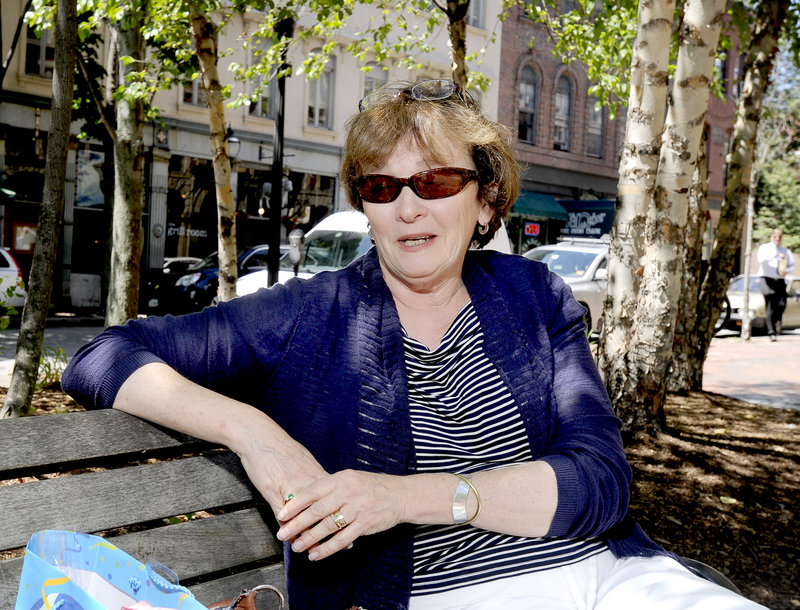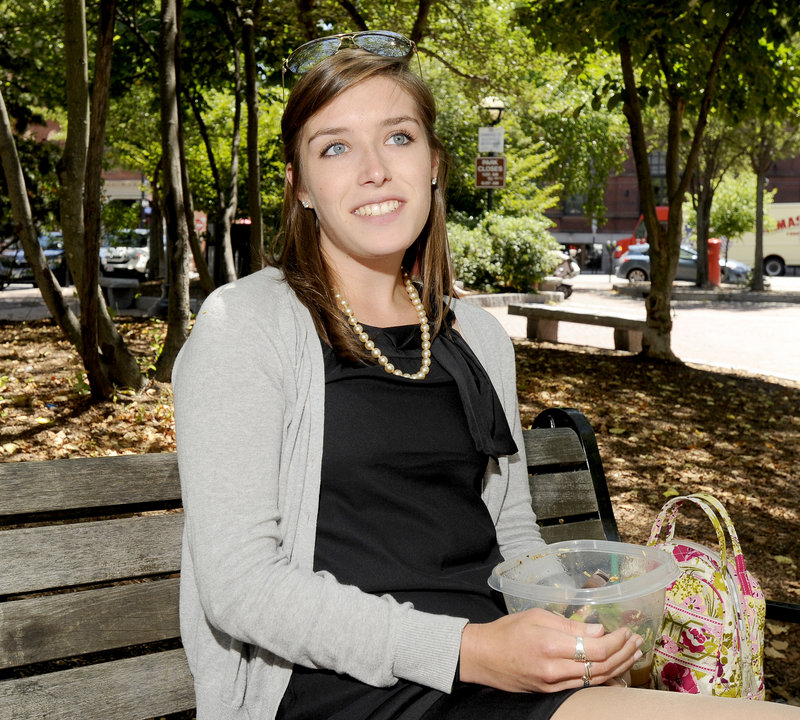PORTLAND – If Maine’s female voters have their way, President Obama will easily win re-election, Maine will overwhelmingly approve same-sex marriage, contraception will be covered by insurance like any other health service, and government will focus more on investing in education than cutting taxes.
Maine men don’t necessarily disagree with women on all of the issues. They just tend to be a bit more conservative. And, in some cases, a lot more conservative.
That is the message in a new statewide poll commissioned by the Portland Press Herald and conducted by Portland-based Critical Insights. The poll explored Maine’s gender gap on political issues and statewide candidates, and included an additional sampling of women to provide greater accuracy on the views of female voters.
The gender gap is more than a political curiosity. Women are a key voting bloc in Maine and nationally, generally outnumbering men at the polls. Maine does not track voter registration or voter turnouts by gender. However, 51.7 percent of voting-age Mainers are women, and the people who run campaigns know it.
Throughout the poll results, Maine’s gender gap shows up in expected and unexpected ways. It is especially wide on issues of women’s health and abortion rights, and issues tied to taxes and the economy.
In some cases, the gap doesn’t show up where it might be expected.
Women in Maine don’t appear to be any more determined than men to elect female candidates to national office this fall, for example.
Neither Democratic U.S. Rep. Chellie Pingree, in the 1st Congressional District, nor Democratic U.S. Senate candidate Cynthia Dill has a significantly higher percentage of female supporters than male supporters, the poll shows.
Which candidates do appear more popular with women than men? Obama, Angus King and Democratic U.S. Rep. Mike Michaud.
King is an independent Senate candidate, running against Dill and Republican Charlie Summers. Michaud is running for re-election in Maine’s 2nd District against Republican Kevin Raye.
Some women said it’s a mistake to expect them to back female candidates more often.
“I really think that we don’t have enough representation for women, and so I do try to look for that. But I certainly wouldn’t vote for a woman just because she is woman,” said Angelina Simmons, an independent voter from Harpswell who backs Pingree in the House race and is leaning toward King in the Senate race.
The gender gap in American politics goes back several decades, and gets larger or smaller depending on the issues of the day, said Emily Shaw, an assistant professor of political science at Thomas College in Waterville who has studied the phenomenon.
“When there is war, women move in a liberal direction in response to national security” issues, she said. More recently, with the economy being the top issue, “men have appeared to become more conservative.”
As expected, the poll shows a wide gap between the genders on so-called women’s issues, which voters tend to identify as abortion rights, contraception and family planning access, and equity in the workplace, among other things.
Republicans’ efforts to cut federal family planning funding and Democrats’ efforts to expand health insurance coverage for contraception make women’s health a hot topic in the presidential election. And that is clearly helping Obama’s re-election bid among Maine women, according to the poll.
Women said they favor Obama over Republican Mitt Romney, 54 percent to 29 percent. Among men, it’s a statistical dead heat, with 44 percent supporting Obama and 42 percent supporting Romney.
One reason is that 64 percent of the women who were polled said they trust Obama more to handle women’s issues. Fifty-three percent of men said they trust Obama with women’s issues, too.
“My biggest fear is losing rights as women if Romney wins,” said Noelle Surprise, a 20-year-old college student from Portland.
Specifically, Surprise said she is worried about women’s access to abortion, contraception and family planning services — “the rights that I feel in the 21st century all women should have. Taking them away seems backward.”
Women said they support mandatory coverage of contraception in employers’ health plans, 49 percent to 43 percent. Men favor allowing employers to opt out of the coverage based on religious or moral objections, 52 percent to 38 percent.
The poll also shows a gap on issues related to the economy and taxes. Men and women cited the economy and jobs as their biggest concerns. Men were slightly more likely to identify those as top issues than women, although the difference was within the poll’s margin of error.
Women were more likely to identify health care and education as top concerns.
“Everybody’s worried about the economy, but men may be more worried about the economy,” said Shaw, at Thomas College.
That may be because men and women have been affected differently by the recession, she said. Men tended to become unemployed more, while women tended to shift into part-time and transitory work.
But it’s clear that women are struggling, too.
Thirty-five percent of the women polled said they are less economically secure than they were two years ago, while 19 percent said they are better off. Among men, 31 percent said they are worse off, while 17 percent said better off.
Women clearly feel at a disadvantage in the economy, according to the poll. Sixty-six percent of the women said they think women are paid less than men for the same work, while only 47 percent of the men said they believe that is true. “The economy is huge (as an issue) and I think women are struggling in the economy more than people think we are,” said Joyce Poirier, a nurse midwife who’s a Democratic voter from Portland.
Poirier said she also is concerned about issues such as equal pay for equal work, women’s health and access to contraceptive coverage. But her vote will be based more on the economy, and she’s not sure who she will choose.
“I have two grown children who are struggling,” she said. “For us, it was a lot easier. The economy side is not very healthy right now. I’m worried.”
Men and women feel differently about how to try to fix the economy, according to the poll.
Fifty-seven percent of the women said they favor more government spending and investment to promote the economy, and 31 percent said they favor cutting spending and taxes as a solution.
Among men, 46 percent said they favor spending more and 40 percent said they favor reducing taxes.
Women also were more likely to support raising income taxes on people who earn $1 million a year or more, although even the more conservative men liked the idea too, according to the poll.
The different views of the economy and what to do about it may help explain why female support is stronger for Michaud and King, and why male support is stronger for their Republican opponents, Raye and Summers. King and Michaud have not been focusing attention so much on women’s issues, but their opponents have been campaigning in favor of cutting spending, according to Shaw.
“I think that Republicans in Maine aren’t necessarily pushing these reproductive-rights questions as much as they are the need to reduce spending,” she said.
King may benefit among women voters more than Dill because he is seen by many Democrats as the best chance to keep the Senate seat out of Republican hands. Women also may remember his laptops-for-students program while he was governor as an example of investment in education, Shaw said.
“I was kind of surprised that women are so enthusiastic about (King),” she said.
Staff Writer John Richardson can be contacted at 791-6324 or at jrichardson@pressherald.com
Send questions/comments to the editors.




